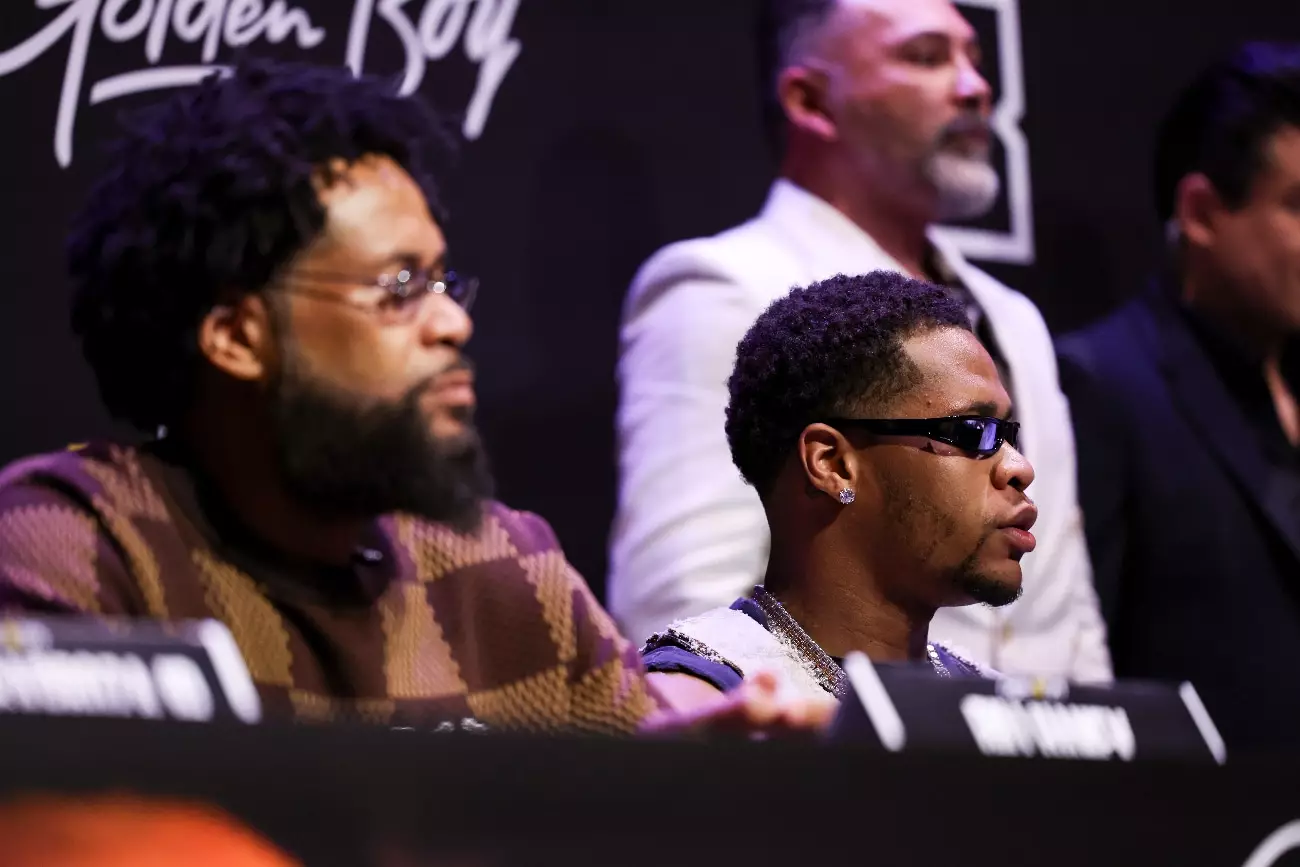The world of professional boxing is infamous for its fierce rivalries and even more intense battles outside the ring. Current events involving Bill Haney and his son Devin Haney against Ryan Garcia exemplify the contentious clashes that can arise when allegations of performance-enhancing drug (PED) use come into play. In a striking confirmation earlier this week, Bill Haney asserted that the lawsuit filed against Garcia is very much alive. This legal action not only seeks to address the specific instance of Garcia’s alleged use of the banned substance Ostarine during their fight but also aims to send a broader message about the consequences of doping in combat sports.
Ryan Garcia, who boasts a professional record of 24-1 with 20 knockouts, emerged victorious against Devin Haney on April 15th, 2023, in Brooklyn, New York. The match concluded with a majority decision in favor of Garcia, a result that Haney’s camp now contests based on the revelation that Garcia tested positive for Ostarine, a substance known for enhancing performance attributes like recovery speed and power output. Bill Haney has been vocal about his belief that Garcia’s performance was heavily influenced by this drug intake, claiming that it tipped the scales unfairly in the match where Garcia knocked Devin down three times.
Garcia’s camp maintains that his skills and determination, not the alleged substance abuse, led him to victory. This divide raises an essential question: how much of an impact do PEDs actually have on performance in a sport often credited to sheer talent and hard work? Critics of the lawsuit assert that the mere presence of Ostarine in Garcia’s system does not diminish his boxing abilities or lessen the thoroughness of his training.
An unsettling cloud looms over the Haney family as they navigate the aftermath of the fight and the lawsuit. While a successful claim could net millions of dollars in damages and possibly lead to a rematch against Garcia, it’s increasingly unclear what benefits will actually materialize. Oscar De La Hoya, the promoter associated with Garcia, has already communicated that no rematch will take place when Garcia returns to the ring in 2025. This leaves the Haneys in a precarious position, where any hopes of financial gain are countered by the uncertainty of competitive opportunities.
Furthermore, there exists skepticism around Devin Haney’s decision to remain inactive, aiming instead for a potential lucrative rematch. Critics have speculated that this strategy might not serve him well in the long run, as it can lead to missed opportunities that come from engaging in matches against other contenders. Rather than sitting idle and potentially stalling his career, it might be wiser for Devin to stay active, capitalize on his skills, and keep his momentum going.
Addressing the Core Issues of PEDs in Boxing
Bill Haney has emphasized the importance of this lawsuit as a declaration against the use of PEDs in boxing. His stance embodies an ethical worry that goes beyond financial recovery: it highlights a necessity for accountability within the sport. “There’s no place for drugs in boxing, and we’re standing on that,” he stated, reflecting a broader challenge faced by boxing organizations to enforce strict regulations that ensure fair competition.
This legal case could set a significant precedent that compels boxing promotions to take stronger stances against doping, possibly leading to more rigorous testing protocols and strained resources to combat this issue. The underlying goal for the Haneys may very well be to cultivate a cleaner sport – one where victories are celebrated under the spirit of fairness and true athleticism.
The Bigger Picture in Sports Ethics
As the Haney vs. Garcia case unfolds, it sheds light on a larger conversation about ethics in sports. The actions of all parties involved can strongly influence future policies in professional boxing. If considered a landmark case, it could spark increased collaboration between lawmakers, sporting organizations, and athletes to prioritize health, integrity, and accountability within competitive environments.
While the lawsuit is rooted in personal grievance, its implications ripple far into the sport of boxing and, perhaps, sports in general. The challenges faced by the Haney family not only signify their personal fight for justice but symbolize a potential turning point in how competitive integrity is upheld in the sporting universe.

